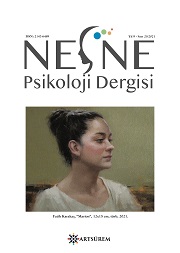Conceptualizing Death: How Do Children in Turkey Understand Death?
Conceptualizing Death: How Do Children in Turkey Understand Death?
Author(s): A. Reyyan Bilge, Rümeysa ÖztürkSubject(s): Cognitive Psychology, Developmental Psychology, Behaviorism, Family and social welfare
Published by: Sanat ve Dil Araştırmaları Enstitüsü
Keywords: Children and death; death concept; development of death concept; parental communication;
Summary/Abstract: Death is a hard concept to understand and a delicate subject to talk about, especially with children. The primary purpose of the current study was to investigate the development of the death concept in children between the ages of 3-10. We also aimed to examine the influence of parental communication in the concept’s development. Fifty-four children (M = 6.44; 55.6% girls, 44.4 % boys) and their parents (N = 37; 6 fathers, 16.2%) were recruited. Children were interviewed one-on-one to evaluate their cognitive and emotional understanding of death. Moreover, their parents were administered a questionnaire to assess how they communicated the concept to their children. We found that older children (7-10 years) grasped some cognitive subcategories of death better than younger children (3-7 years). Our results also showed that both younger and older children had better cognitive and emotional comprehension of the concept if their parents have communicated it to them. These findings suggest that talking to children about death, in an age-appropriate way, helps them perceive the concept better. Age-appropriate communication, especially on an important topic such as death, can further be discussed in terms of social policy.
Journal: Nesne-Psikoloji Dergisi
- Issue Year: 9/2021
- Issue No: 20
- Page Range: 221-239
- Page Count: 19
- Language: English

